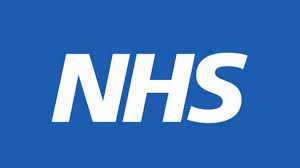Breast cancer
- 08 Dec 2023
- 2 Minutes to read
- Print
- PDF
Breast cancer
- Updated on 08 Dec 2023
- 2 Minutes to read
- Print
- PDF
Article summary
Did you find this summary helpful?
Thank you for your feedback
The risk of breast cancer varies depending on a person's modifiable and non-modifiable risk factors, such as being overweight, drinking alcohol or increasing age. For more information on risk factors for breast cancer, see NICE CKS guidance.
OESTROGEN ONLY HRT
NICE says:
- Oestrogen only HRT slightly increases the risk of breast cancer compared to not taking HRT and the increase rises with longer duration of use, is greater in current users compared to past users, declines after stopping HRT but persists for at least 10 years after stopping use.
- There is no difference in breast cancer risk between transdermal and oral oestrogen.
COMBINED HRT
NICE says:
- Combined HRT increases the risk of breast cancer compared with not taking HRT, and the increase rises with duration of use.
- The increase is higher in current users compared to past users.
- The increase declines after stopping HRT, but persists at least 10 years after stopping use.
- Sequential combined HRT preparations increase the risk of breast cancer less than continuous combined HRT preparations.
- It is not known with certainty whether preparations containing micronised progesterone or dydrogesterone have a different increased risk for breast cancer compared with preparations containing other progestogens, due to limited data.
The BMS says:
- Any increase in breast cancer risk is small and estimated at less than 0.1% per annum or an incidence of <1.0 per 1000 women per year of use.
- Results from the E3N Cohort study, a large observational French study, suggest that oestrogens combined with micronised progesterone or dydrogesterone do not increase breast cancer risk for up to 5 years of use and after this there is a small increased risk.
It must be emphasised that findings from the E3N cohort study are based on observational data and, for this reason, any conclusions remain tentative.
VAGINAL OESTROGEN
- Studies suggest low-dose vaginal oestrogens preparations do not increase the risk of breast cancer.
POI PATIENTS AND EARLY MENOPAUSE
- The BMS says HRT is unlikely to increase risk of breast cancer in women with POI.
- Regarding early menopause, the most recent update from NICE states that evidence shows an increased risk of breast cancer for people with early menopause who used HRT compared to those not using HRT.
NOTE:
Overall, the risk of breast cancer associated with combined HRT is consistently greater than that associated with oestrogen only HRT.
References and Further Information:
- National Institute for Health and Care Excellence. Guideline. Menopause (update). Draft for consultation, Nov 2023.
- Hamoda H, Panay N, Pedder H et al. The British Menopause Society & Women’s Health Concern 2020 recommendations on hormone replacement therapy in menopausal women. Found on page 190. Post Reprod Health 2020.
- Baber R, Panay N, Fenton A and the IMS writing group. 2016 IMS recommendations on women’s midlife health and menopause hormone therapy. Climacteric. 2016. Found on page 125.
- Fournier A, Berrino F, Clavell-Chapelon F. Unequal risks for breast cancer associated with different hormone replacement therapies: results from the E3N cohort study. Breast Cancer Res Treat 2008;107:103–11
- Crandall C, Hovey K, Andrews C et al. Breast cancer, endometrial cancer, and cardiovascular events in participants who used vaginal estrogen in the Women's Health Initiative Observational Study. Menopause. 2018.
- Joint position statement by the British Menopause Society, Royal College of Obstetricians and Gynaecologists and Society for Endocrinology on best practice recommendations for the care of women experiencing the menopause. Post Reproductive Health 2022.
- The ESHRE Guideline group on POI. ESHRE Guideline: management of women with premature ovarian insufficiency. Human Reproduction 2016. Found on page 931.
Was this article helpful?

